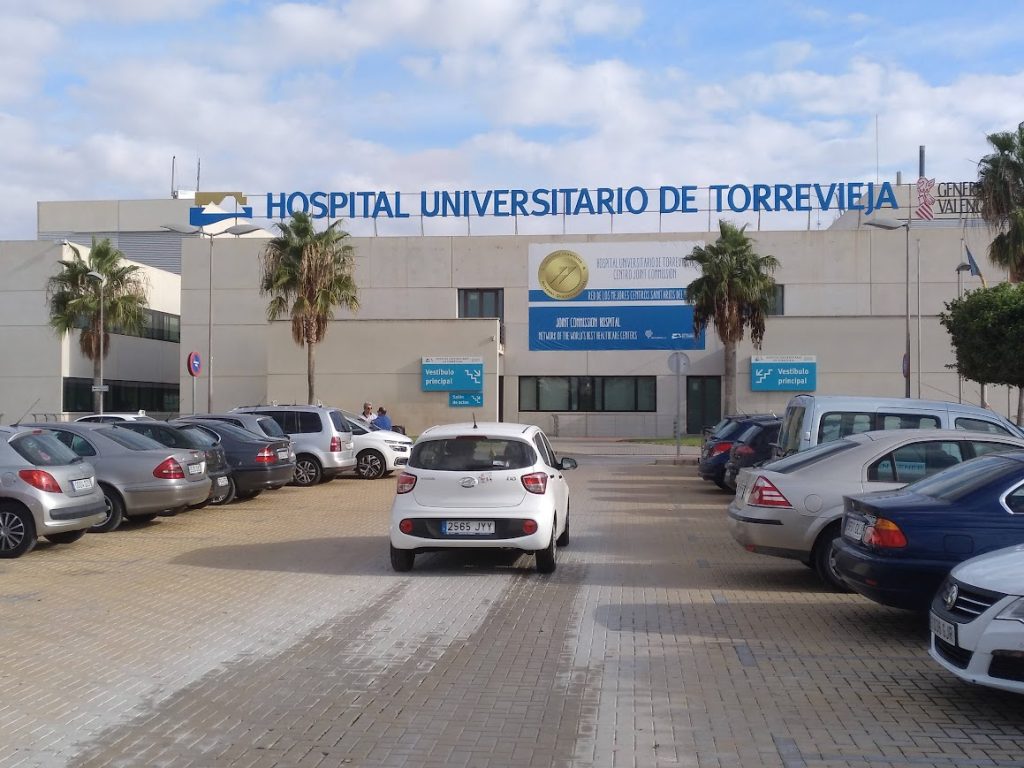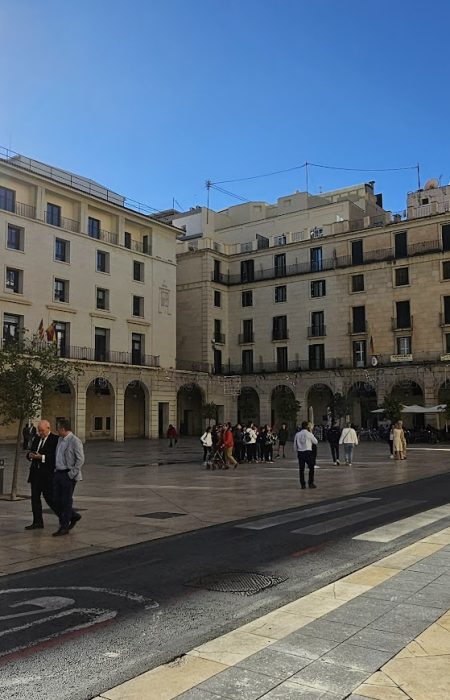July arrives, and so do doctors holidays, which are already causing appointment waits of more than a month in some parts of the province of Alicante. Patients who scheduled an appointment for a blood test last week will have to wait until August 4th. Their doctor, who is on leave for the month of July, has no successor, and the Health Department has not assigned another professional, although the summer criterion is to divide quotas among those still on duty.
This is happening in Elche’s Vinalopó department, where emergencies are directed to care centres that open at 3 p.m.
According to the Medical Union, only 22 primary care doctors (24 of whom are already in hospital care) will be replaced during the summer, despite having a large population and five health centres, five clinics, and one integrated health centre between the municipalities of Elche, Aspe, and Crevillent. However, in the health centres of Elche General Hospital, one of every four primary care doctors will be replaced by vacationers.
In general, the Ministry of Health’s dedication to strengthening healthcare facilities in tourist destinations puts people further inland at risk. But in places like Torrevieja, only 11.79% of primary care doctors (one in ten) get paid holidays, and only 4% of hospital beds are reserved.

María José Gimeno, deputy general secretary of the CESMCV Medical Union, says the situation in Torrevieja is particularly problematic, with little medical coverage despite being a tourist destination. “I imagine that in the summer, there is more attention on substitution in beach places, but Torrevieja is in dire shape. Primary Care is in a horrible situation; they’ve employed a lot of nursing personnel but no doctors. They are substituting 11.79% of physicians and 42.47% of nurses, but this does not lower the medical schedule.”
When asked what criteria she believes the Ministry of Health has used in this department, she replied, “I don’t see any. The Marina Alta department has made several substitutions that are more appropriate for the seaside area. But I can’t explain what happened in Torrevieja because it’s not a coastal condition. This publication has approached the regional ministry about it, but they have yet to react.
The doctor also worries about Orihuela’s inadequate coverage, with 18.62% of doctors in Primary Care and 1.91% in Hospitals.
Uneven planning
In general, the northern half of the province and the city of Alicante plan to replace more vacationing doctors than the rest of the province.
The relief rate for doctors on leave has reached 63.72% in Marina Alta (despite the fact that there are already delays of up to a month for medical appointments in some health centres, according to UGT data); it is 38.13% in Marina Baixa, where demand for care soars in the summer, including Benidorm; it is 40.95% in the Sant Joan department; 46.94% in the Alicante-Doctor Balmis department; and 24.33% in the Elche-General Hospital department.
at Alcoy, it’s 31.84% (and 8.08% at the hospital), while the Elda department’s only data submitted to the unions is the €222,175.73 budget for organising the summer in Primary Care.
Lack of resources
According to Dr. Mari Ángeles Medina, president of the Valencian Society of Family and Community Medicine and a doctor at an Elche health centre, organising primary care during the summer season might be challenging due to limited resources. We appreciate the Health Department’s attempts to respond to the situation, but in addition to doctors’ essential vacations, there is a year-round scarcity of solid staff. The public is aware of the situation, and many of them have asked us about it. They sympathise with us and recognise that we are attempting to accommodate all demands. She says, “The only thing that has been fortified is the coast. The remaining health centres are experiencing delays of two or three weeks on average, as they have in prior years.
The doctors on duty have schedules that exceed 40 patients in July and August, and 50 in September, which is also a holiday month. With the arrival of the summer season, the Forum of the Medical Profession, of which the Valencian Society of Family Medicine is a member, wishes to express its concern about “the lack of doctors to cover healthcare during the summer and the repercussions that this chronic lack of foresight will have, once again, both on adequate patient care and on ensuring decent and safe working conditions for professionals in their practice,” predicting a difficult autumn.
The association thinks that the structural scarcity of experts “cannot and should not be compensated at the expense of healthcare overload and the denial of doctors’ right to rest.” As with any other workers, we must maintain our physical and mental health, which is vital for providing proper care to patients. To address these flaws, expanding the number of on-call staff or imposing endless work schedules would not solve the problem; in fact, it will exacerbate it.
82.5 million Euro
This year, the Ministry of Health has allocated 82.5 million euros to cover healthcare during the summer season, with the opening of 25 auxiliary beach clinics, six of which are in the province, as well as the reinforcement of 74 healthcare centres in the Valencian Community and thirty in Alicante. The proposal, “in principle and always subject to staff availability,” anticipates more than 8,600 additional jobs (as last year) in addition to the reinforcement modules. Minister Marciano Gómez emphasised the three million euro increase over last year.
Dr. Medina emphasises that doctors on duty during the summer are not encouraged to see patients with other appointments. Years ago, there was an incentive for scheduling more appointments, but it was discontinued. Dr. Gimeno of the CESMCV says that it is now free of charge, citing disturbingly low rates of physician replacement during vacations.
Gimeno criticises the Ministry of Health’s “lack of transparency” in vacation planning. “Before, they provided us with the entire number of employees, those on vacation, those replaced, and the number of contracts. However, this year they simply reported the number of employees from specific departments. “Everything was much clearer last year,” she recalls.
He also points out that few doctors have requested vacation from October to December since the working day was extended this year, which he attributes to a lack of incentives. “With these strategies, if there is no motivation, you will fail. If the economy improves, young individuals with mortgage payments may choose to go in October because holidays are cheaper and they will get compensated. If not, they leave in the summer.”
Bed closure
Regarding the hospital beds that will be closed this summer, keep in mind that at least 800 beds will be available in hospitals throughout the province of Alicante.
500 of these were in hospitals in Alicante (69 in July, August, and September, including 13 in the Outpatient Surgery Unit, 27 in the Digestive System, six in the Comprehensive Burn Care Unit, and 23 in Orthopaedic and Trauma Surgery); Elche (54 per month, including trauma and cerebrovascular surgery); and La Vila (38 per month).
According to a document prepared by the UGT (Union of Labour) based on data from the regional ministry, there will also be 38 per month at Elda Hospital (in Orthopaedic Surgery and Traumatology), 42 at Sant Joan Hospital each summer (37 inpatients and five in the ICU), and 12 at Orihuela Hospital in July (Paediatrics), 26 in August (Obstetrics), and 28 in September (Internal Medicine). There are currently no numbers for the hospitals in Alcoy, Dénia, and Torrevieja.
In the instance of La Vila, the Health Department reports zero beds each month, although the centre has been under repairs on many floors since June 1st, and several units are out of operation. “There is congestion in the Emergency Department every day due to lack of space,” according to CCOO.
The Satse Nursing Union also warns of hospital bed closures around the country due to a shortage of personnel. As a result, they anticipate “increased waiting lists and worse healthcare.” The union emphasises that this step, along with the suspension of consultations, tests, and procedures, “is standard practice for all health services to save costs, regardless of the negative consequences suffered by patients and healthcare professionals.”







No Comment! Be the first one.